News
Over Three Weeks After, I still Carry Bullets In My Body –Lekki Toll Gate Shooting Survivor
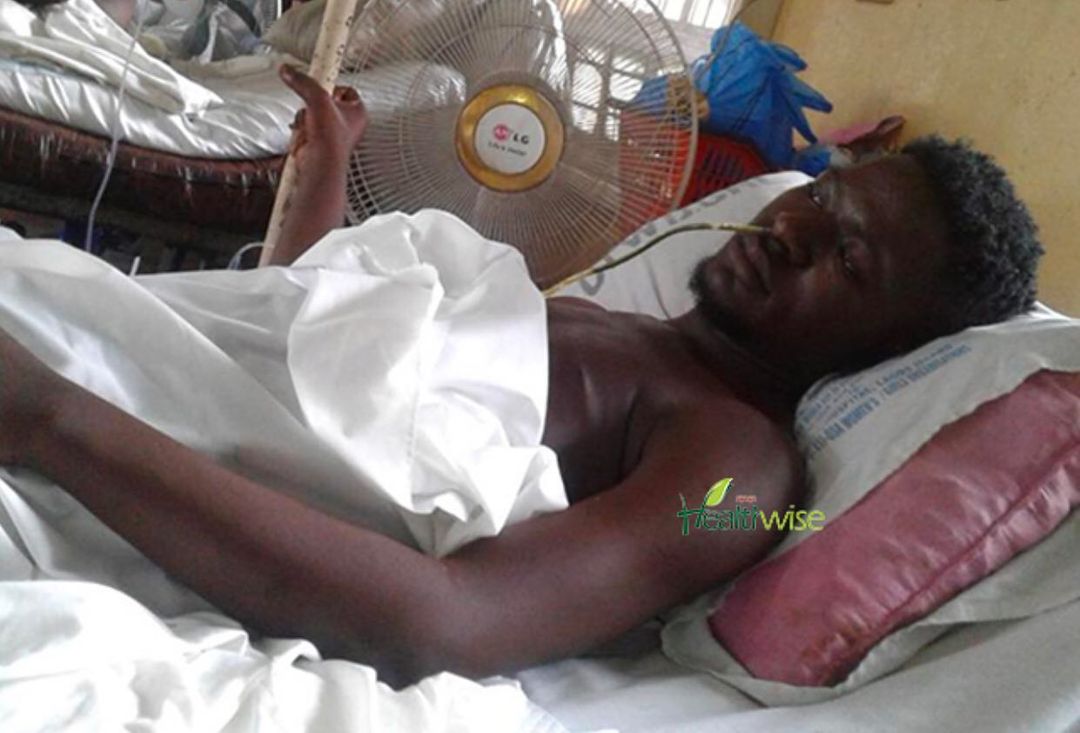
For survivors of Lekki Toll Gate shooting and their families, Tuesday, October 20 will remain etched in their memories for a long time to come. ADEBAYO FOLORUNSHO-FRANCIS returns to the hospital to see how those on admission are faring
One of the survivors of the shooting that marred the #ENDSARS protest at Lekki Toll Gate in Lagos, Meshack Esanibi, says the bullets he took into his left leg are yet to be extracted over three weeks after the incident that nearly claimed his life.
On October 27, PUNCH HealthWise reported the story of Esanibi who was rushed to the General Hospital, Odan, Lagos Island, after he was allegedly shot on the left leg by soldiers drafted to disperse the #ENDSARS protesters at Lekki Toll Gate.
When PUNCH HealthWise checked up on him again in Ward B of the General Hospital, Esanibi sat on his sick bed.
Looking better than he was two weeks ago, Esanibi said he had been able to establish contact with a relative after his story was published.
The Delta State indigene, however, told our correspondent that he had been experiencing excruciating pain all over his body, especially on the affected limb, noting that the discomfort he felt might be because the bullet had not been extracted from his leg.
“Since I was admitted after the Lekki toll gate shooting incident, the bullet has not been removed. It is still in my leg.
“I don’t even know whether the bullet was the cause of the intense pain I am feeling. But I was told by a doctor that I will soon be taken into the theatre again.
Continuing, Esanibi said he had not started using his leg. He, however, said that his gunshot wounds are being attended to regularly.
In a text message to our correspondent, the Medical Director of the hospital, Dr. Ismail Ganikale, said Esanibi desperately needs blood for surgery.
“He needs family members or friends to donate blood. Blood is not sold; someone has to donate for him.
“Arrangements being made for blood should be fruitful soon,” Ganikale said in the message.
Esanibi told our correspondent that he was in dire of blood donors before his surgery…
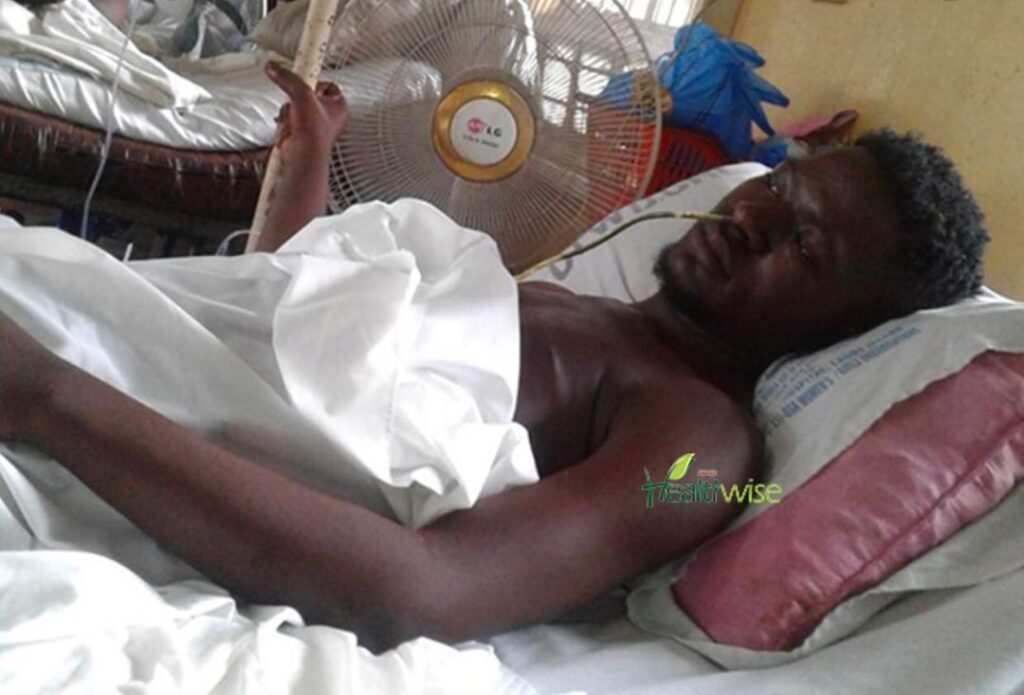
News
Anyone Opposing U.S. Strikes Is Nigeria’s Enemy or Profiting From Insecurity — Ex-General Enenche
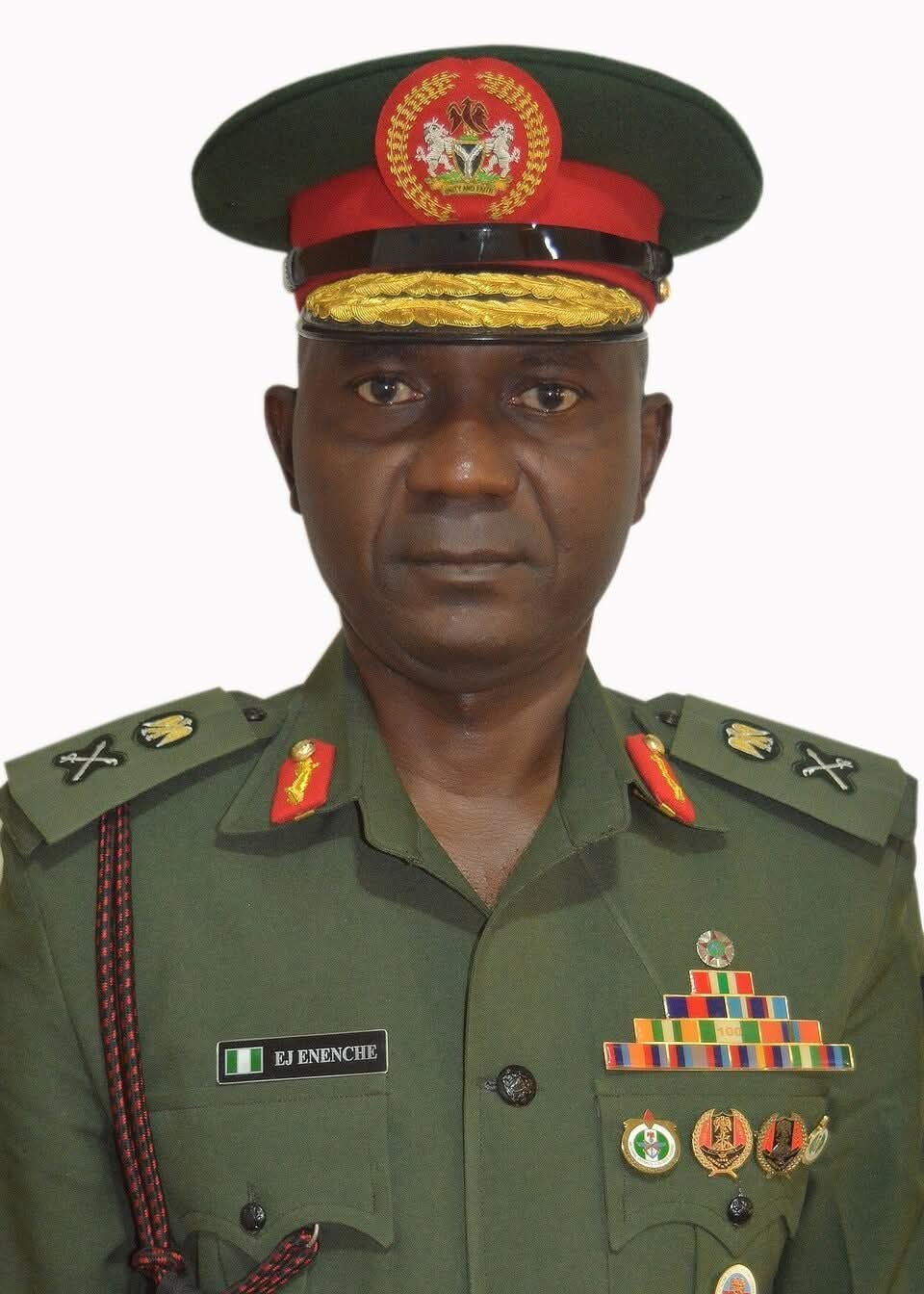

A former Nigerian military general, Enenche, has described opposition to United States support and strikes against terrorists as unpatriotic, insisting that such resistance only aids insecurity or serves personal interests.
Reflecting on his experience in active combat zones over two decades ago, Enenche said he witnessed firsthand the human cost of insecurity. According to him, security goes beyond the battlefield, affecting human lives, the economy, and even cyber space.
“As a military man who fought in that area over 20 years ago, I saw with my own eyes the casualties, the rage and the devastation. When you talk about security, you are talking about human security, economic security, cyber security. It affects everyone,” he said.
He welcomed the United States’ decision to support Nigeria, describing it as a positive development for the country. Enenche referenced former U.S. President Donald Trump’s commitment to assist Nigeria, noting that such cooperation signals hope rather than danger.
“America has come out boldly to say, ‘We are going to help you’. President Donald Trump said they will assist Nigeria. For me, this is the beginning of good things to come for this country,” he stated.
The retired general criticized individuals who consistently oppose foreign support, accusing them of spreading fear and pessimism.
“Where some people see negatives, we should see positives. Those who constantly project fear and pessimism, I see them as enemies of this country,” he said.
Drawing comparisons with Nigeria’s past peacekeeping missions, Enenche questioned why similar objections were not raised when Nigerian troops intervened in countries such as Liberia, Sierra Leone, and Congo.
“Anytime Nigerians cooperate and act as a team, we get results,” he added.
He further clarified that while foreign allies may not deploy ground troops, Nigeria must still take responsibility for on-ground operations, with strong backing from state and local governments.
“They may not put boots on the ground, but we must do the foot-on-ground work. We must deploy the necessary resources, and that is where state governments and local governments must support this effort,” he said.
Highlighting the sophistication of recent operations, Enenche emphasized that the strikes were intelligence-driven and precise, targeting terrorist strongholds.
“Look at the capacity, look at the weapons used. Do we have that capability? This was intelligence-driven and precise. These terrorists do not want to be followed to their staging or assembly areas,” he concluded.
News
‘Give Them Their Money Directly’ — Tinubu Warns Governors Over LG Allocations
President Bola Ahmed Tinubu has issued a stern warning to state governors over the handling of Local Government (LG) allocations, insisting that funds meant for LGs must be paid directly to them in line with the Supreme Court judgment.
Speaking on Friday at the 15th APC National Executive Committee (NEC) meeting in Abuja, Tinubu stressed that the apex court has once again made its position clear, leaving no room for ambiguity. According to him, compliance is no longer optional, as the judgment is binding on all tiers of government.
“The Supreme Court has capped it for you again, saying, ‘give them their money directly’. If you wait for my Executive Order, because I have the knife, I have the yam, I will cut it,” the President said, adding that he has chosen to be patient and respectful with governors.
However, Tinubu warned that continued delay or refusal to implement the ruling would attract consequences, noting that enforcement could begin through FAAC disbursements if necessary.
Emphasizing the rule of law, the President said the ultimate authority remains the Supreme Court and its judgment must be obeyed without excuses.
“We have to comply. We have to respect the judgment,” he concluded.
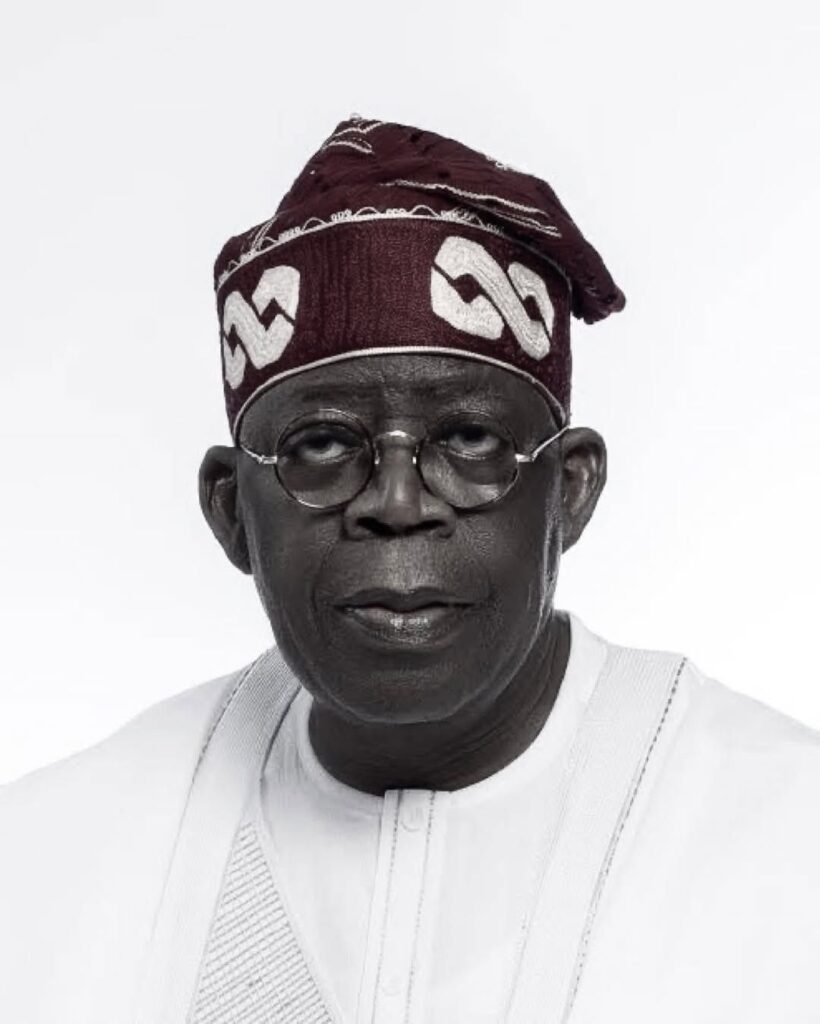
News
Accord Party Welcomes Adeleke for 2026 Governorship Bid
The Accord Party in Osun State has indicated that Governor Ademola Adeleke would be granted a waiver if he decides to contest the 2026 governorship election under its platform.
Victor Akande, Chairman of Accord Party in Osun, told The PUNCH on Sunday that Adeleke or his aides have not formally approached the party, describing speculation about a potential defection as “mere rumours.”
Accord Party has emerged as a possible platform for Adeleke’s re-election amid internal tensions in his current party, the People’s Democratic Party (PDP).
Akande said the party already has two aspirants for its ticket in the August 8, 2026 election but would welcome Adeleke if he chooses to join.
“The issue of Governor Adeleke is still a rumour. I have not met with anyone from the government about this. Accord Party is not the only option being speculated for his defection, but if he comes, we will receive him wholeheartedly,” Akande stated.
He added, “Our doors are always open. People are free to join or leave at any time. If Adeleke comes, he will receive a waiver to contest just like any other aspirant. Currently, two individuals have shown interest in running under our platform, though they have not made financial commitments yet.”
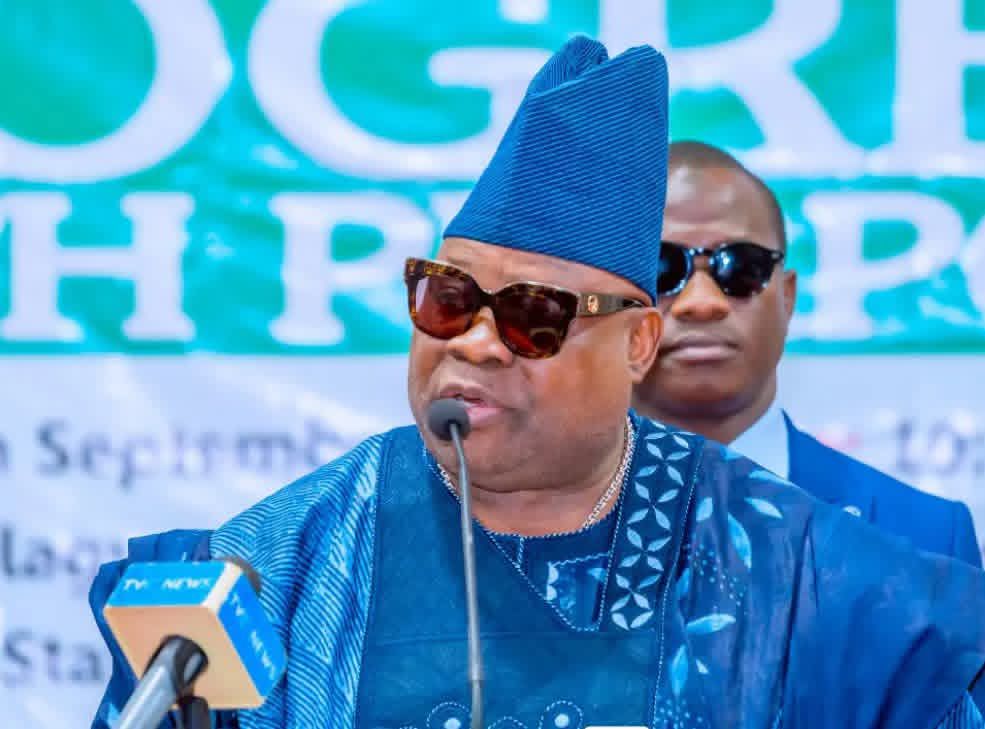

-

 News2 years ago
News2 years agoHardship: We Plan To Establish A National Commodity Board To Crash Food Prices – VP Shettima
-
News8 years ago
Blog Reader; Samson Osagiede Celebrates Fiancè Benedicta Daniels’s Birthday With Sweet Words
-
Home9 years ago
News Channel claims Donald Trump is an orphan from Pakistan,share alleged childhood photo
-
Home9 years ago
Another $175m Found in Patience Jonathan’s wife’s firm’s Bank Account
-
Home9 years ago
Oil Spillage: House of Reps Member Shares Photos of the Water her Constituents Drink .
-
Home9 years ago
Zara Buhari & Ahmed Indimi’s Wedding Access Card
-

 Sport7 years ago
Sport7 years agoModric, Marta Wins 2018 FIFA Best Player Of The Year Awards ⚽️
-
News8 years ago
The Best Video You’ve Seen Today?
